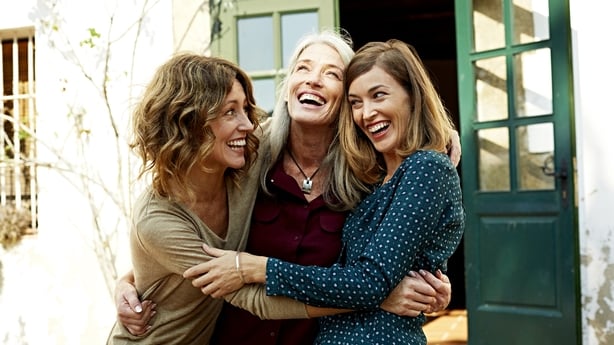We've all been changed by what we've been through over the past two years, whether we acknowledge that or not. That’s what clinical psychologist Dr Tony Bates told Brendan O’Connor as they discussed how we navigate our emergence from our Covid-restricted lives.
"I think before we were on automatic pilot for a lot of the time and now I think we’ve a chance to make some choices because Covid has revealed things to all of us about what matters, you know, relationships, people in supermarkets, neighbours that we came to rely on much more than we ever had. And these are the good things."
The flip side of that is that Covid has also shown us that we’re vulnerable to sickness, to setbacks and to bereavement. And how we live with our vulnerability, Tony says, defines us:
"For example, if we resent it and disown it and project it out into the world onto somebody else, we suffer a lot. We’re always very edgy. But if we can really accept it and really see it for what it is, then I think we behave much more gently, I think we are more patient and we're less haunted by our own superegos. We’re much more able to set goals and standards that are achievable."

On a fundamental level, Covid tapped into a very deep existential anxiety that – in non-pandemic times – exists as a kind of a background hum in our lives.
This anxiety is rooted in the fact that our lives are finite, and we usually cope with it by doing things that make our lives meaningful to us and creating things and people that will serve as our legacy. Tapping this nerve of anxiety makes us, Tony says, very keenly aware of threat – any kind of threat:
"It could be climate, it could be Ukraine, it could be rising cost of living. We’re highly sensitised to threat, we’re highly attuned. We can see it, like if there’s been a fire in the house, you will spot the scent of smoke a mile away."
So that’s an awareness of what matters, a sense of vulnerability and also a simmering anxiety. That’s what the pandemic has bestowed upon us and, as we emerge from the restrictions to try to move towards the sorts of lives we had back in 2019, Tony says we need to give ourselves time to connect with these feelings and understand that they’re continuing in the background.
"There are really serious issues for all of us about how do we want to live and what do I want to hold onto and what do I want to let go?"

It’s important that we are aware of what we’ve learned during the pandemic years and that what we’ve learned matters:
"What is it that I learned that really matters to me? What is it that really became clear to me about my life that I want to take a bit more care of, take a bit more seriously? And then finally, what’s it like to take up my authority? What’s it like to realise that, 'You know what? I have to make a decision about going A or B or doing A or B.’ And how does that feel? Is that uncomfortable or comfortable? I think you need to check in first, before you take the steps."
Brendan wonders about the feeling aspect of things. Do we really need to stop and ask ourselves how something makes us feel? We absolutely do, Tony says, it’s what psychology is all about:
"At the heart of all our mental health problems – all of them – is a fear of experiencing directly what we experience."
Are we trying to avoid it all the time? Brendan asks. Of course we are, is the answer. And we have so many ways of doing it.

Another aspect of our emergence from the haze of pandemic restrictions is the re-engagement with friends and colleagues and trying to make sense of who is good for us and who isn’t. Tony told Brendan that there’s a formula to help people work that out:
"Consistency, reliability and warmth. Those three things. That’s what does it for mothers and babies, that’s what does it for all of us."
It’s all ahead of us – let's be careful out there. You can hear Brendan’s full conversation with Dr Tony Bates by going here.

